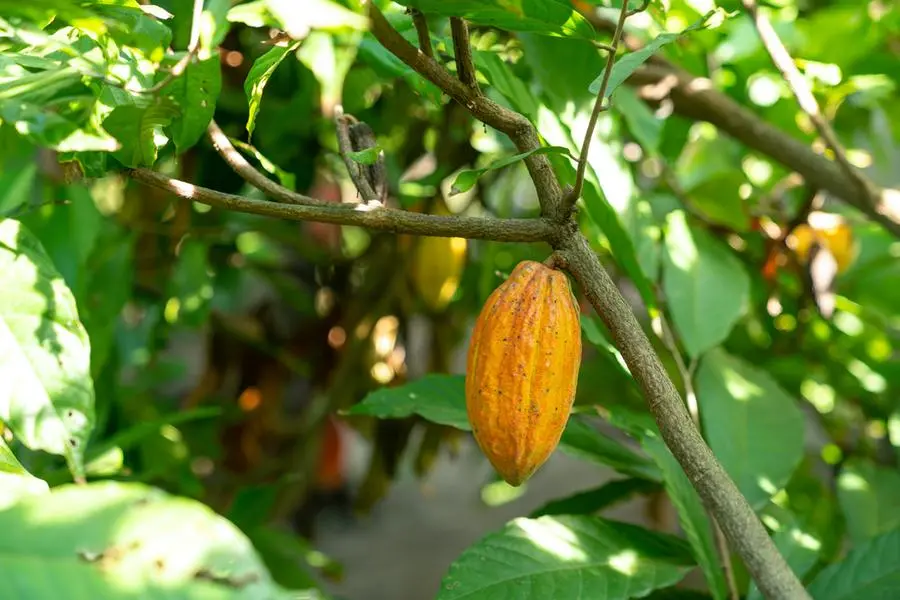PHOTO
Producers of coffee and cocoa in the Democratic Republic of Congo (DRC) have been accorded a one-year reprieve by the European Union to ensure that no land is deforested for their production.
The EU had given the Congolese a January 1, 2025 ultimatum to ensure that their agricultural practices comply with European requirements or face a blockade of their coffee and cocoa exports.
But now, the Congolese government says the EU has postponed the decision by 12 months.
Nevertheless, DRC remains on the EU list of countries whose agricultural production has not been fully certified as environmentally friendly.
The initial decision to block Congolese coffee and cocoa from Europe from January 1, 2025, due to the difficulty of deploying field investigators to ensure that coffee and cocoa were not produced in deforested areas.
The audit has been deferred to December 2025.
Read: Congo tops Uganda export market in EAAccording to a regulation passed by the European Parliament, Europe prohibits the sale of goods resulting from deforestation or forest degradation, in line with its “zero deforestation” policy.
The bloc decided that, from December 2020, the importation of coffee, cocoa, wood, palm oil, soy, rubber, paper and beef will be barred if they originate from deforested land. The measures have been in force since June 30, 2023.
The EU passed the policy after noticing that part of Asia’s forests had been decimated and replaced by oil palm or rubber plantations, and thousands of hectares of Brazilian forests had been burned down for soya cultivation.
Companies importing these products are now obliged to prove the traceability of the goods before entering the European Union.
For environmental organisations, the EU policy is paradoxical, given that Europe is responsible for 16 percent of global deforestation, making it the second-biggest destroyer of the world’s tropical forests after China.
Fédération des entreprises du Congo (Federation of Congo Enterprises) and coffee and cocoa producers, having received the EU notice from certification bodies, alerted Foreign Trade minister Julien Paluku who promised to ensure their products access the European market.
Kinshasa officials feel that Congolese farmers are being unfairly targeted, as the deforestation in that country is minimal in comparison to other countries.
Farmers, too, say they have made too “many efforts and sacrifices” to lose the lucrative EU market.
Minister Paluku has assured the business federation that all measures would be taken to prevent this decision from affecting Congolese products.
He said that the government will work to “prevent any repercussions on the economic and social plans of the Congolese people”.
Officials have sought at a tripartite meeting with the European Union and the UN peacekeeping mission Monusco to petition the European bloc to remove Congo from the blacklist of countries that destroy forests.“The fields from which coffee and cocoa come are not cleared of forests,” Mr Paluku said.“In the DRC, we have 80 million hectares of arable land, which has nothing to do with the forest cover, which is 155 million hectares, 62 percent of which is tropical rainforest, including 105 square kilometres of peat bogs, mangroves and miombo forests.
We have the right to make the most of our land with perennial crops conducive to agroforestry, notably coffee and cocoa.”Quoting data from the Environment ministry, Mr Paluku asserts that the DRC records only 0.03 per cent deforestation per year,” so, we’d take many years to reach three percent deforestation.”The global figures are alarming. According to a study by the Food and Agriculture Organisation, between 2015 and 2020, the annual rate of deforestation was almost 10 million hectares.
Over the past 30 years, tropical forests have been hardest hit, accounting for 90 percent of deforestation.“When we cultivate our 80 million hectares of arable land, we are not violating the principle of deforestation, because we have not touched the 155 million hectares of forest.”Minister Paluku suggests that DRC’s enemies or economic rivals in the region have influenced the EU decision.
“The European Union sets up auditors who come to check whether cocoa and coffee fields have been established on areas where forests have been cut down, as is the case here in the DRC. Curiously, the European Union’s auditors are based in Kenya, Uganda and Rwanda. These are the auditors who come to audit cocoa and coffee fields in the DRC.
The last auditors’ visit was reported in June and July 2024, and the certification report was issued in August 2024. This report is valid for one year. So, it’s in August 2025 that the auditors can come back to see if there’s been any change,” he said.
© Copyright 2022 Nation Media Group. All Rights Reserved. Provided by SyndiGate Media Inc. (Syndigate.info).




















